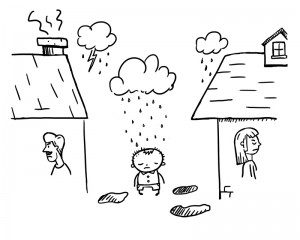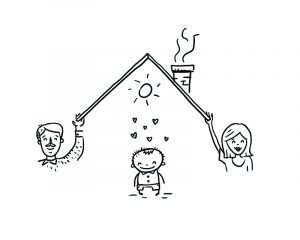How is it possible to work together as parents when it seems you disagree on everything? When you are both so wound up by the personal conflict that this can often be ‘played out’ in front of your child. Remember, children can be very astute and pretty clever at figuring out how to get what they want! They can be especially good at achieving this when they observe that you don’t speak or see each other. This in itself is not necessarily bad, (particularly when there is high conflict) however, you don’t want them to be keeping secrets or lying to both of you and potentially finding themselves in an unsafe situation.

The beauty of being a parent is that you want to pass on all the good stuff you were given to your children. Often, in the process of divorcing or separating we lose touch with ourselves, no longer recognising our skills and strengths as parents. We’re no longer able to celebrate our children together, which can lead to an extremely sad and fragmented family situation. Opportunities to share the good moments and our children’s achievements are very rare when separated.
It’s easy to compare and criticise each other’s parenting styles more then ever when separated, especially when we really don’t see eye to eye. The love ‘glue’ that was once applied to heal and patch up your differences or help you find a compromise has dissolved. So how do you find a way to work together when the foundation you once built up has collapsed?

Some see this as an opportunity to finally bring up their child as they see fit and even more reason to have their own unique parenting style. Whilst this is perfectly fine, it’s best to agree on and stick to at least 3 core values that you both want for your child – such as manners, boundaries, swearing, mealtimes, etc. The rest can be flexible, allowing each of you to enjoy your time with your child, demonstrating your individual styles of parenting whilst still respecting each other’s skill set. Remember, difference is good and offers more opportunities for your child!
Your children need to know they have a ‘safe roof’ over their heads. Not only a literal one but a metaphorical one provided by both of their parents.
